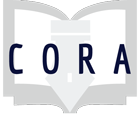This video was put together to offer health sciences students a brief introduction to critically thinking about their resources in order to evaluate how appropriate they are for use in their work. It was important that the learners understand the complexities of using specific resources and why it is important to always critically evaluate materials. This includes a discussion of critiques of gatekeeping surrounding peer review, how damaging and discriminatory research can still get published, and how to ask crucial questions to subvert dominant narratives.
Assignments
The Penn State Berks Privacy Workshop Series focuses on privacy issues for students in the past, present, and future. The Privacy Workshop spotlights privacy practices and concerns in the current moment; Digital Leadership explores future implications of past and current digital behaviors; Digital Shred provides tools to e
This assessment asks undergraduate engineering students to review, rate, and explain their decisions relating to the credibility of information resources and information containers. Students are asked to review various resources as well as containers. After reviewing, students assign each resource or container with one of three ratings: green (always credible), yellow (potentially credible with further investigation), or red (never credible). Last, students explain their decision in relation to each resource or container.
Developed in order to move students away from an outdated checklist approach to evaluating online content, we developed this tutorial to teach students how to read laterally and think critically. This tutorial consists of several small chunks of microlearning activities including an assignment. Students can complete as much or as little as they feel they need.
The assignment has students search the same topic in Google and the Web of Science or BIOSIS database. They are asked to pick one result from each search, identify its components (title, author, year) and identify the container of the information (journal, book, news, etc.). They are then asked to compare and reflect on the different results.
In this activity focused on evaluating sources, students respond to the question "What makes a source 'good'?" by collectively brainstorming a list of characteristics they should look for in evaluating a source, then using their list to evaluate different types of sources on the same topic (e.g., a scholarly article, an op-ed, and a news article). As a class, students discuss whether their source was "good" based on the class's list of characteristics and for which types of information needs or settings their source might be most appropriate.
When writing a research paper, it can be easy to overlook the human side of scholarship – how being cited in a study (or not) can have real, material consequences, and how social structures can systematically exclude certain people from scholarship. This activity and lesson explores these ideas and gives students strategies for making their literature reviews more inclusive.
All told, this lesson takes about 50 minutes to an hour -- 20-30 minutes for the readings and pre-workshop activity, and 30 minutes of discussion.
How can we facilitate first-year student engagement with critical Framework concepts, especially in a one-shot class? This active learning activity is designed to teach source evaluation in a 50-minute class. The activity, which incorporates elements of problem-based learning and uses a flipped classroom approach, was added to our institution’s first-year experience course.
For this project you will be creating a digital resource that can be used to help teach about the Southern California Library’s mission and materials, how to work with archival materials, and, in general, how to work with and research primary sources.
This assignment introduces students to United States patents and to prior art searching using two free, online databases: Espacenet and Lens.org. Instructional videos are available at: http://guides.lib.campbell.edu/patents .
